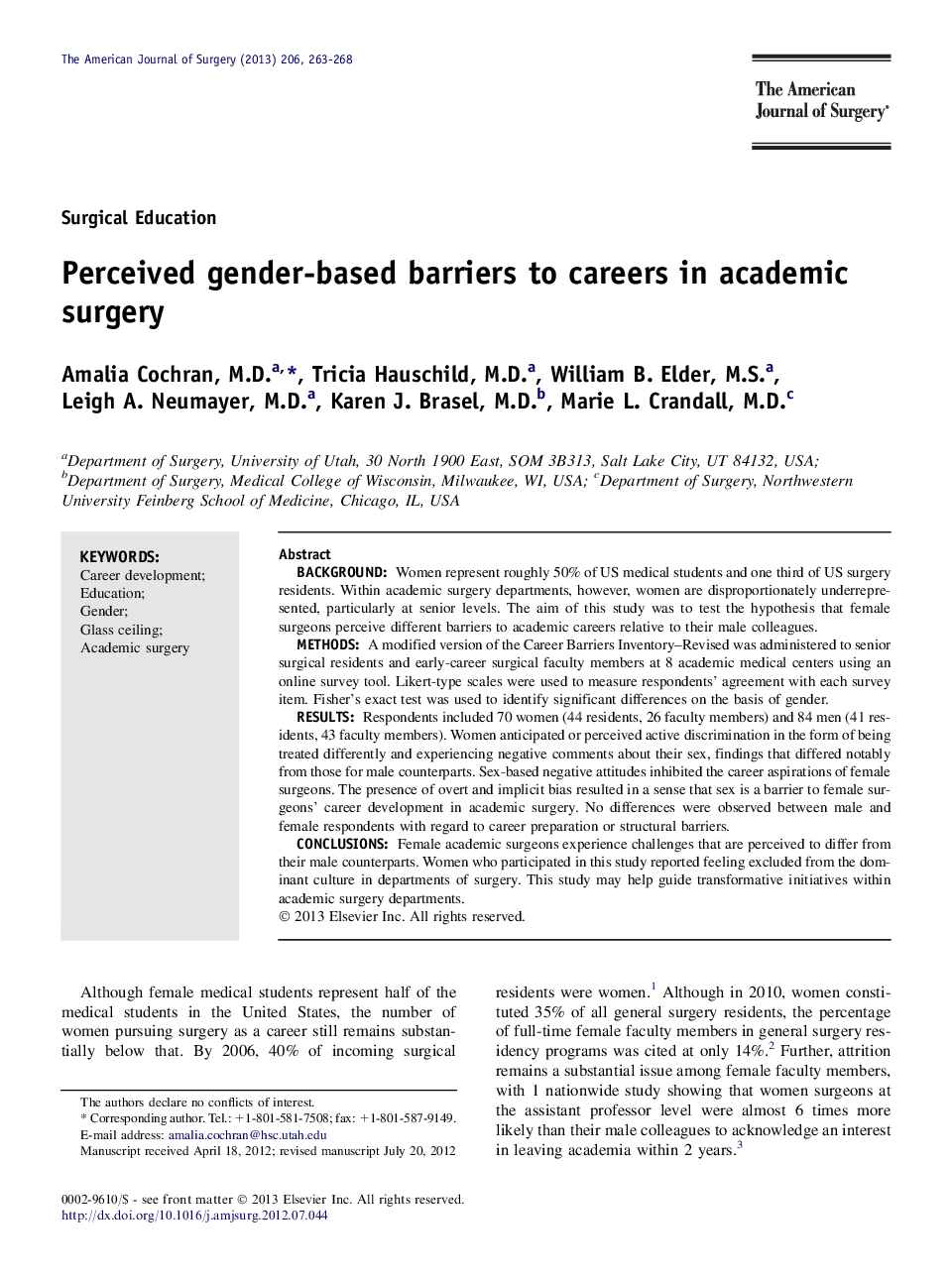| Article ID | Journal | Published Year | Pages | File Type |
|---|---|---|---|---|
| 4279178 | The American Journal of Surgery | 2013 | 6 Pages |
BackgroundWomen represent roughly 50% of US medical students and one third of US surgery residents. Within academic surgery departments, however, women are disproportionately underrepresented, particularly at senior levels. The aim of this study was to test the hypothesis that female surgeons perceive different barriers to academic careers relative to their male colleagues.MethodsA modified version of the Career Barriers Inventory–Revised was administered to senior surgical residents and early-career surgical faculty members at 8 academic medical centers using an online survey tool. Likert-type scales were used to measure respondents' agreement with each survey item. Fisher's exact test was used to identify significant differences on the basis of gender.ResultsRespondents included 70 women (44 residents, 26 faculty members) and 84 men (41 residents, 43 faculty members). Women anticipated or perceived active discrimination in the form of being treated differently and experiencing negative comments about their sex, findings that differed notably from those for male counterparts. Sex-based negative attitudes inhibited the career aspirations of female surgeons. The presence of overt and implicit bias resulted in a sense that sex is a barrier to female surgeons' career development in academic surgery. No differences were observed between male and female respondents with regard to career preparation or structural barriers.ConclusionsFemale academic surgeons experience challenges that are perceived to differ from their male counterparts. Women who participated in this study reported feeling excluded from the dominant culture in departments of surgery. This study may help guide transformative initiatives within academic surgery departments.
